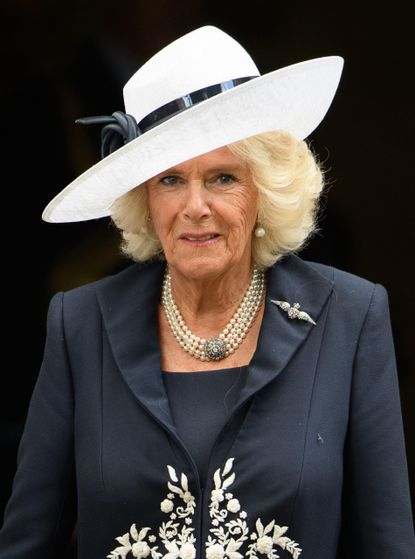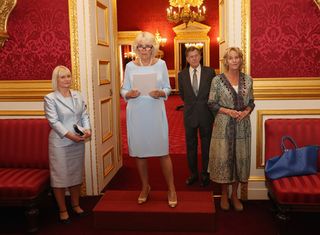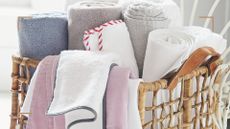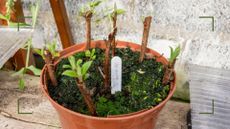Duchess Of Cornwall Urges Others To Look After Their Bone Health, Recounting The Pain Of Watching Her Mother And Grandmother Die From Osteoporosis

The Duchess of Cornwall has spoken openly about the "agoinising" ordeal of watching her loved ones die from the bone disease osteoporosis - and urges others to look after their bone health while they still can.
Osteoporosis is a condition where your bones gradually weaken and break, and is unfotunately part of the ageing process.Camilla, who has been president of the National Osteoporosis Society since the early 90s, has long been an advocate of discussing the importance of bone health, given her tragic experience with her beloved mother and grandmother.
As a young woman, she describes being "blissfully unaware" of the potentially devastating effects of osteoporosis.
But, she describes how her mother's and grandmother's experience with the disease brought the reality of it into sharp focus.
Speaking about how they began to deteriorate during their illness, she said, "Sadly, as I grew older, I learned a great deal more about osteoporosis at first hand, as I watched both my mother and grandmother suffer the pain and ignominy of this agonising disease,"
She also details the horrifying experience of watching how her mother "shrank", as she approached her final 72nd birthday, before passing away.
Previously, Prince Charles' wife has described how "my family and I watched in horror as my mother quite literally shrank in front of our eyes.
Sign up for the woman&home newsletter
Sign up to our free daily email for the latest royal and entertainment news, interesting opinion, expert advice on styling and beauty trends, and no-nonsense guides to the health and wellness questions you want answered.

(The Duchess at a recent event for osteoporosis)
"I believe that the quality of her life became so dismal, and her suffering so unbearable, that she just gave up the fight and lost the will to live."
Her mother, Rosalind Shand, then passed away in 1994, while her grandmother Sonia Keppel had passed away eight years earlier in 1986.
But the Duchess has now spoken about how important it is to take care of your bones in order to avoid the illness - particularly in your 20s. In fact, Camilla revealed that it is in fact difficult to change bone strength once in your 30s.Speaking about the lessons she's learnt, she said, "So what message would I send to my younger self, now that I have learned so much more about it?
"Eat a healthy diet with plenty of calcium and Vitamin D, and take plenty of exercise, both are crucial for strong and healthy bones."
Osteoporosis prevention
The NHS states that bones are in their thickest and strongest in your 20s, but that bone density gradually decreases from the age of 35.
So while it's best to work on bone strength in your 20s, and despite that fact that you can't necessarily improve it past that decade, there are steps you can take to ensure that you maintain what strength you do have, to prevent osteoporosis.
Weight-bearing exercises and resistance exercisesare a good option for maintaining bone strength, whilst aerobic exercise can also be useful in in order to strengthening the surrounding muscles. These are thesymptoms of osteoporosis to look out for.
Amy Hunt is an experienced digital journalist specialising in homes, interiors and hobbies. She began her career working as the features assistant at woman&home magazine, before moving over to the digital side of the brand where she eventually became the Lifestyle Editor up until January 2022. Amy won the Digital Journalist of the Year award at the AOP Awards in 2019 for her work on womanandhome.com.
-
 No airing cupboard? No problem. Here's how to dry and store towels and bedding without one
No airing cupboard? No problem. Here's how to dry and store towels and bedding without oneAfter some alternative airing cupboard ideas? Explore our expert solutions for storing and drying towels to keep them fresh
By Natasha Brinsmead Published
-
 How to take hardwood cuttings like a pro – to double your garden for free
How to take hardwood cuttings like a pro – to double your garden for freeTaking cuttings is the best way to fill your garden with new shrubs, bushes and even trees without any costs
By Kayleigh Dray Published
